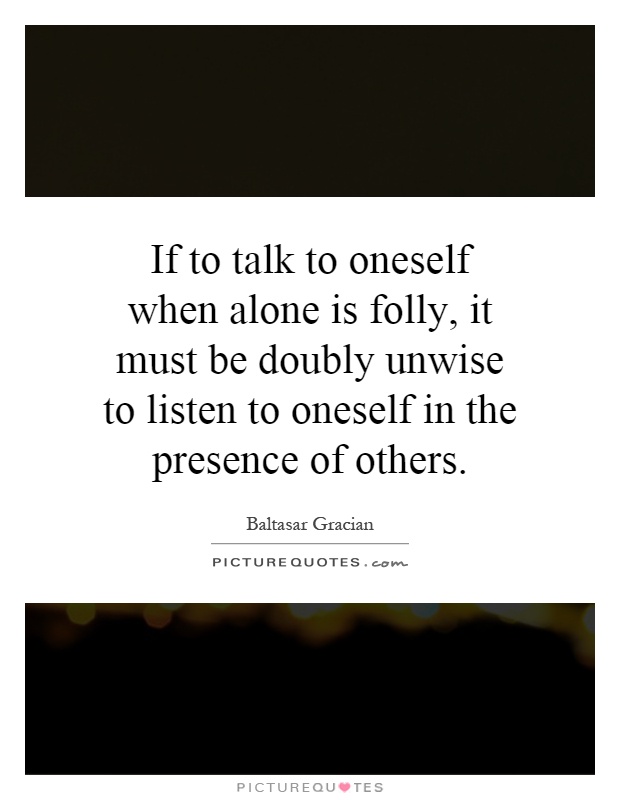If to talk to oneself when alone is folly, it must be doubly unwise to listen to oneself in the presence of others

If to talk to oneself when alone is folly, it must be doubly unwise to listen to oneself in the presence of others
In the context of the quote “If to talk to oneself when alone is folly, it must be doubly unwise to listen to oneself in the presence of others,” the teachings of Baltasar Gracian, a Spanish Jesuit and baroque prose writer, can shed light on the importance of self-awareness and self-control in social interactions.Gracian’s works, particularly his book “The Art of Worldly Wisdom,” emphasize the importance of maintaining a composed and thoughtful demeanor in all situations. He believed that one’s actions and words should be carefully calculated and executed with precision, especially when in the presence of others. This idea is reflected in the quote, which suggests that listening to oneself in the presence of others can be seen as a sign of arrogance or self-absorption.
When we talk to ourselves, we are often engaging in introspection and self-reflection. This can be a valuable tool for self-improvement and personal growth. However, when we listen to ourselves in the presence of others, it can come across as self-centered or egotistical. It may give the impression that we are more concerned with our own thoughts and opinions than with those of others.
Gracian would likely caution against this behavior, as it can alienate others and hinder effective communication. Instead, he would advise individuals to be mindful of their words and actions, considering how they are perceived by others. By practicing self-awareness and self-control, we can better navigate social interactions and build stronger relationships with those around us.












 Friendship Quotes
Friendship Quotes Love Quotes
Love Quotes Life Quotes
Life Quotes Funny Quotes
Funny Quotes Motivational Quotes
Motivational Quotes Inspirational Quotes
Inspirational Quotes